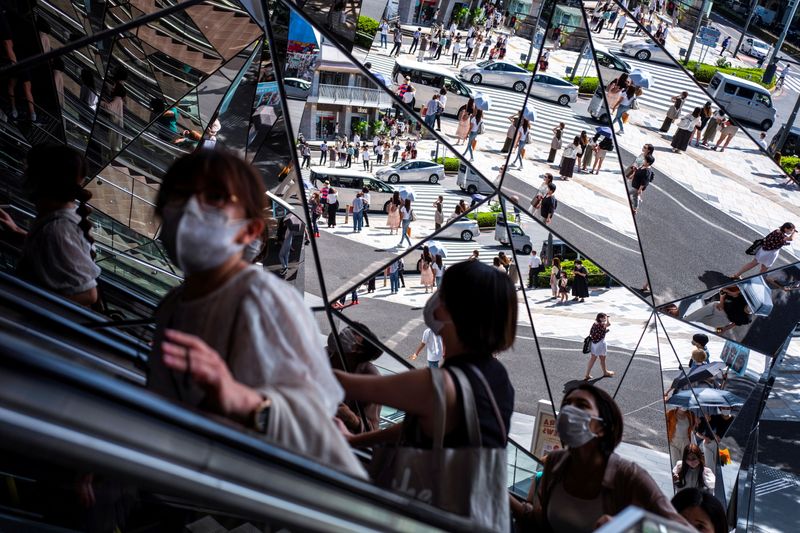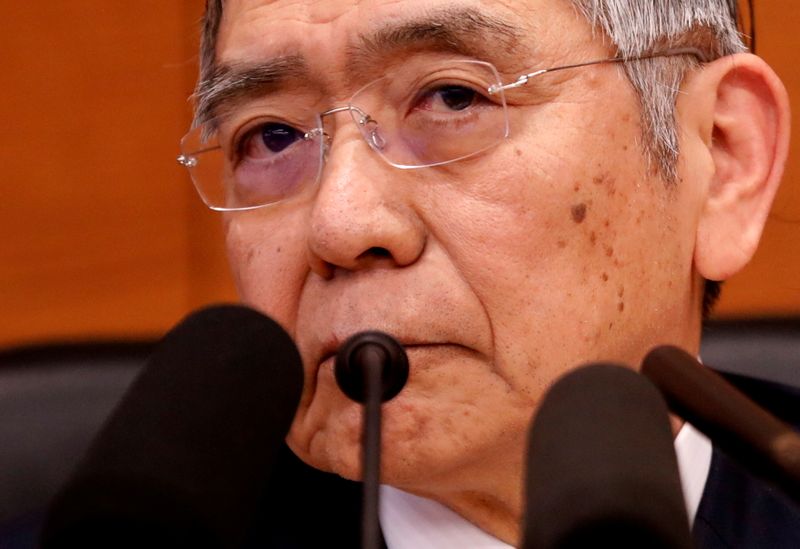TOKYO (Reuters) -The Bank of Japan will continue to focus on cushioning the economic blow from the coronavirus pandemic, given lingering uncertainty over the outlook and subdued inflation, Governor Haruhiko Kuroda said on Monday.
Corporate funding remains severe for retailers hit by the health crisis, Kuroda said, signalling the central bank’s readiness to extend the current March 2022 deadline for a range of pandemic-relief programmes.
Sluggish domestic demand and companies’ reluctance to pass on higher raw material costs to consumers will likely keep any rebound in inflation moderate, Kuroda said.
“It’s true Japan’s economy has been held back by the successive waves of COVID-19,” Kuroda said in a speech at an online meeting with business leaders in Osaka, western Japan.
“It’s becoming quite difficult to achieve our 2% inflation target,” Kuroda told reporters after the meeting, reinforcing expectations the BOJ will lag well behind other major central banks in withdrawing its massive monetary support.
Unlike Western economies, Japan’s consumer inflation remains stuck around zero as weak demand keeps companies from passing on rising costs from commodity inflation and supply disruptions.
Kuroda said Japan’s economic recovery would strengthen as manufacturers continue to benefit from robust overseas demand.
While chip shortages and factory shutdowns blamed on the pandemic are likely to slow exports and output, such supply bottlenecks will “hopefully” subside by year-end, he said.
But any pick-up in inflation will be moderate as Japanese firms tend to absorb rising costs at the expense of narrowing margins, compared with their overseas counterparts, Kuroda said.
The key will be how soon consumption will recover from the pandemic’s hit, he said.
“Given high uncertainty over the outlook due to the spread of the Delta variant, the BOJ must continue to focus on responding to the pandemic for the time being,” he said.
Under yield curve control, the BOJ pledges to guide short-term interest rates at -0.1% and 10-year bond yields around 0% as part of efforts to hit its elusive 2% price goal.
It also extended until March next year a range of programmes to ease funding strains for companies hit by the pandemic.
(Reporting by Leika Kihara; Editing by Simon Cameron-Moore, Chang-Ran Kim and Alison Williams)























